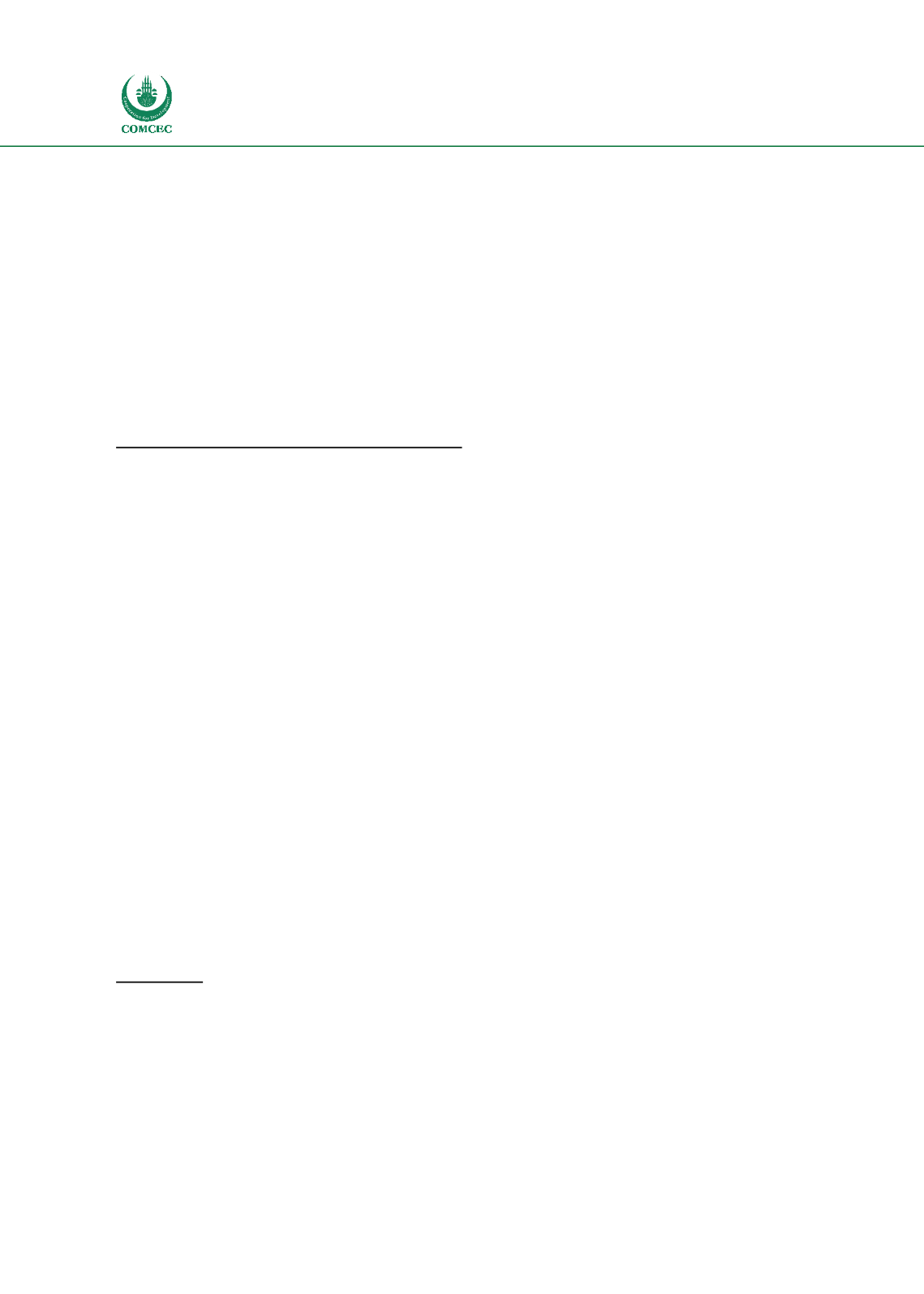

Special Economic Zones in the OIC Region:
Learning from Experience
154
Power supply in the industrial park is provided by a temporary mobile power
substation;
Water and waste treatment services are still under development; and
The site has a dedicated fire prevention and protection, as well as park security.
In terms of administrative infrastructure, aiming to assist investors:
There is a one-stop-shop on site;
There is a custom clearance service for imported raw materials and exported products.
5.7.3
Legislative and Regulatory Framework
Background of SEZ Development in Ethiopia
Ethiopia’s move to incorporate SEZ into the country’s economic direction, derives from the main
economic development policy – the Growth and Transformation Plan 2010/11 – 2014/15 (GTP).
The GTP aims at addressing a range of developmental indicators, while also providing a
framework for industrialization for SEZs through a policy matrix (GTP/PM) targeting specific
sectors. The GTP is complimented by Ethiopian Investment Policy, which is supported by
accompanying legislation the Investment Proclamation No.769/2012, which among other
things ensures the protection of private property rights and the repatriation of capital and profit.
Industrial Parks were also identified as way in which to address two of the most frequently
mentioned grievances by investors in Ethiopia, namely access to land and government being
seen as an impediment to investment (in terms of red tape and policy and regulation). The
industrial park programme was therefore seen as a tool to address these impediments to further
investment by liberalising business conditions in a limited geographical area.
Bole Lemi was given further impetus by Ethiopia being a signatory to the United States’ African
Growth and Opportunity Act (AGOA). These conditions led to the World Bank financing the
development of Kilinto Industrial Zone and the Bole Lemi Industrial Zone, with further
expansion of Bole Lemi II, being approved in early 2014. Bole Lemi is administered by the
Industrial Parks Development Corporation (IPDC), under the Ethiopian Investment
Commission.
Legislation
The Industrial Park programme is governed by the Industrial Parks Proclamation No. 886/2015,
as well as the Investment Proclamation No.769/2012. Industrial Parks Proclamation aims to:
Attract private sector participation in manufacturing;
Enhance competitiveness of economy; and
Creates jobs and achieve sustainable economic development.
















